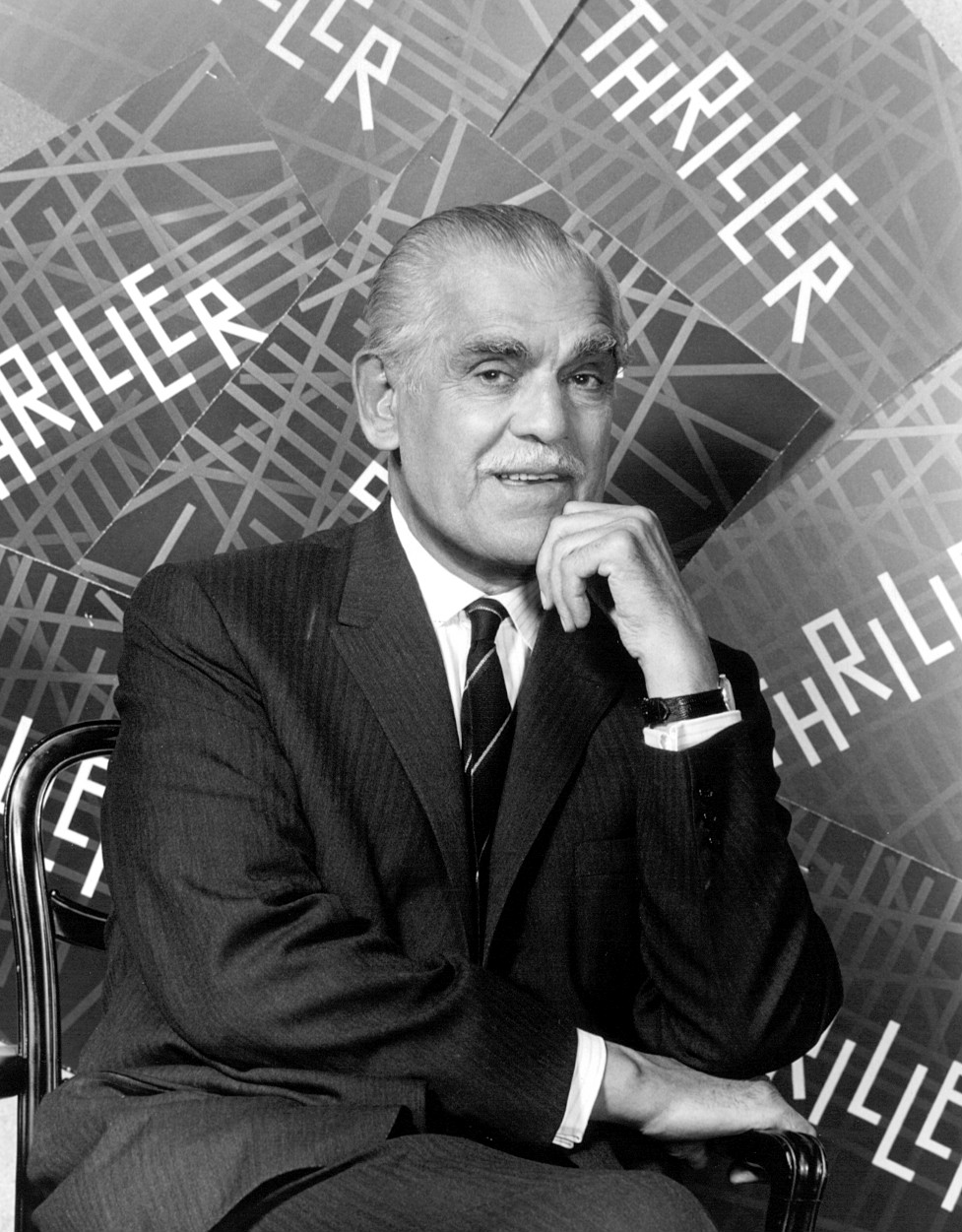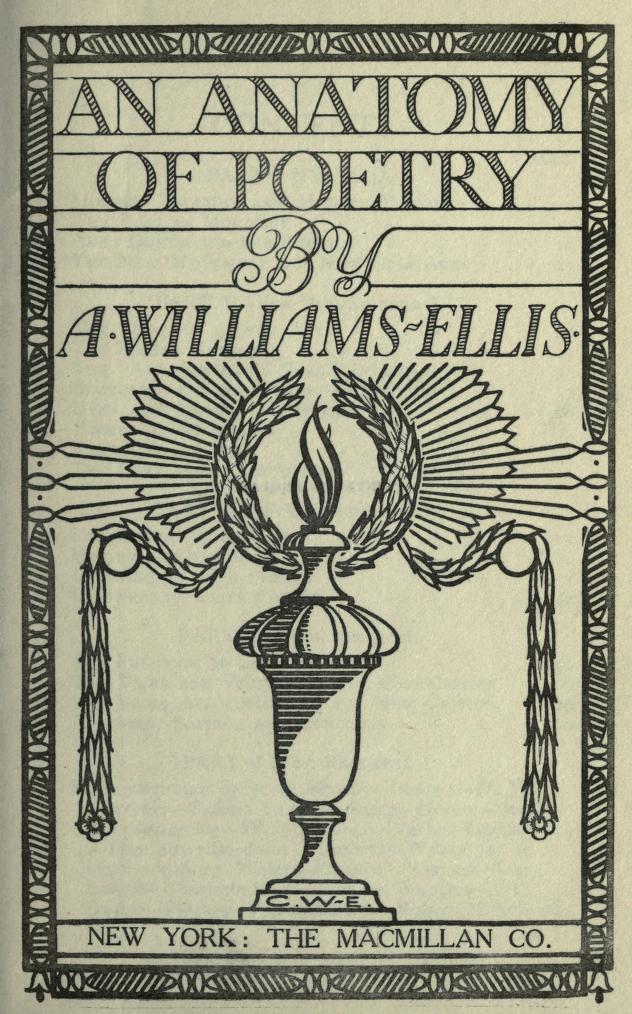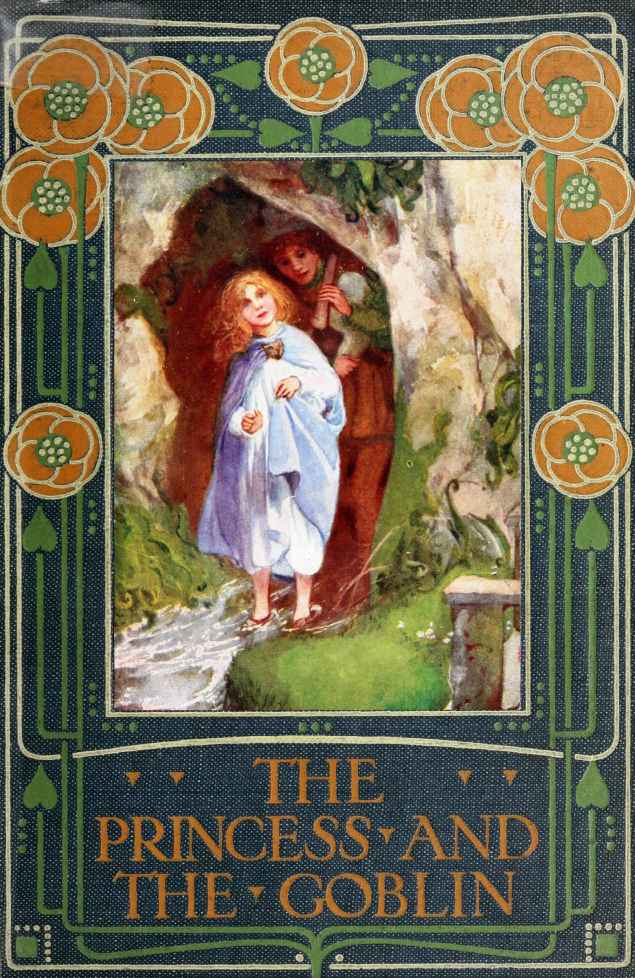|
Out Of This World (UK TV Series)
''Out of This World'' is a British science fiction anthology television series made by the ITV franchise ABC Weekend TV for ITV. It was broadcast on ITV in 1962. A spin-off from the ''Armchair Theatre'' anthology series, each episode was introduced by the actor Boris Karloff. Many of the episodes were adaptations of stories by science fiction writers including Isaac Asimov, Philip K. Dick and Clifford D. Simak. The series is described by the British Film Institute as a precursor to the BBC science fiction anthology series ''Out of the Unknown,'' which was created and produced by ''Out of This World'' creator Irene Shubik after she left ABC. Only one episode, "Little Lost Robot", exists today and is available on DVD. Two of the missing episodes, "Cold Equations" and "Impostor", have surviving audio soundtracks, which are also available on DVD. The "Cold Equations" soundtrack is complete, but the "Impostor" soundtrack is incomplete and runs at approximately 44 minutes. Origin ... [...More Info...] [...Related Items...] OR: [Wikipedia] [Google] [Baidu] |
Irene Shubik
Irene Shubik (26 December 1929 – 26 September 2019) was a British television producer and story editor, known for her contribution to the development of the single play in British television drama. Beginning her career in television at ABC Weekend TV, she worked on ''Armchair Theatre'' as a story editor, where she devised the science fiction anthology series '' Out of this World''. Moving to the BBC, she briefly worked as a story editor before being promoted to producer, creating the science fiction anthology television series ''Out of the Unknown''. Leaving ''Out of the Unknown'' after two seasons, Shubik co-produced ''The Wednesday Play'', overseeing its transition into ''Play for Today'' in 1970. She left the BBC in 1976, and subsequently produced the first season of ''Rumpole of the Bailey'' for Thames Television before joining Granada Television where she produced ''Staying On'' and devised '' The Jewel in the Crown''. She also wrote film scripts and a novel, ''The Wa ... [...More Info...] [...Related Items...] OR: [Wikipedia] [Google] [Baidu] |
Robert Sheckley
Robert Sheckley (July 16, 1928 – December 9, 2005) was an American writer. First published in the science-fiction magazines of the 1950s, his many quick-witted stories and novels were famously unpredictable, Absurdist fiction, absurdist, and broadly comical. Nominated for Hugo Award, Hugo and Nebula Awards, Sheckley was named Author Emeritus by the Science Fiction and Fantasy Writers of America in 2001. Biography Sheckley was born to a Jewish family in Brooklyn, New York City. In 1931, the family moved to Maplewood, New Jersey. Sheckley attended Columbia High School (New Jersey), Columbia High School, where he discovered science fiction. He graduated in 1946 and hitchhiked to California the same year, where he tried numerous jobs: landscape gardener, pretzel salesman, barman, milkman, warehouseman, and general laborer "board man" in a hand-painted necktie studio. Still in 1946, he joined the United States Army, U.S. Army and was sent to Korea.Jonas, Gerald"Robert Sheckley, ... [...More Info...] [...Related Items...] OR: [Wikipedia] [Google] [Baidu] |
Thriller (US TV Series)
''Thriller'' (also known as ''Boris Karloff's Thriller'' and ''Boris Karloff Presents'') is an American anthology television series that aired during the 1960–61 and 1961–62 seasons on NBC. The show featured host Boris Karloff introducing a mix of macabre horror tales and suspense thrillers. Overview ''Thriller'' was created by Hubbell Robinson for MCA's Revue Studios. Though remembered primarily as a series that emphasized gothic horror, under producer Fletcher Markle ''Thriller'' was initially a series oriented towards suspense and crime drama, in the manner of ''Alfred Hitchcock Presents''. Markle was let go after having completed eight episodes, and replaced by Maxwell Shane. Shane continued in the crime drama mold, though he began to add trappings of gothic horror to a few stories, but he too was replaced after having completed a further nine episodes. The rest of the first season and all of the second was produced by William Frye, who firmly moved ''Thriller'' ... [...More Info...] [...Related Items...] OR: [Wikipedia] [Google] [Baidu] |
Alfred Hitchcock Presents
''Alfred Hitchcock Presents'' is an American television anthology series created, hosted and produced by Alfred Hitchcock, airing on CBS and NBC, alternately, between 1955 and 1965. It features dramas, thrillers, and mysteries. Between 1962 and 1965, it was renamed ''The Alfred Hitchcock Hour''. Hitchcock himself directed only 17 episodes during its run. By the time the show premiered on October 2, 1955, Hitchcock had been directing films for over three decades. In the 21st century, ''Time'' magazine named ''Alfred Hitchcock Presents'' as one of "The 100 Best TV Shows of All Time". The Writers Guild of America ranked it #79 on their list of the 101 Best-Written TV Series, tying it with '' Monty Python's Flying Circus'', '' Star Trek: The Next Generation'' and '' Upstairs, Downstairs''. In 2021, '' Rolling Stone'' ranked it 18th on its list of 30 Best Horror TV Shows of All Time. History ''Alfred Hitchcock Presents'' is well known for its title sequence. The camera fades i ... [...More Info...] [...Related Items...] OR: [Wikipedia] [Google] [Baidu] |
The Twilight Zone (1959 TV Series)
''The Twilight Zone'' (marketed as ''Twilight Zone'' for its final two seasons) is an American fantasy science fiction horror anthology series, anthology television series created and presented by Rod Serling, which ran for five seasons on CBS from October 2, 1959, to June 19, 1964. Each episode presents a standalone story in which characters find themselves dealing with often disturbing or unusual events, an experience described as entering "the Twilight Zone", often with a Plot twist, surprise ending and a moral. Although often considered predominantly Science fiction on television, science-fiction, the show's paranormal and Franz Kafka#"Kafkaesque", Kafkaesque events leaned the show much closer to fantasy and Horror fiction, horror (there are about twice as many fantasy episodes as science fiction). The phrase "twilight zone" has entered the vernacular, used to describe surreal experiences. The series featured both established stars and younger actors who would become much bet ... [...More Info...] [...Related Items...] OR: [Wikipedia] [Google] [Baidu] |
Horror Film
Horror is a film genre that seeks to elicit physical or psychological fear in its viewers. Horror films often explore dark subject matter and may deal with Transgressive art, transgressive topics or themes. Broad elements of the genre include Monster movie, monsters, Apocalyptic and post-apocalyptic fiction, apocalyptic events, and Religion, religious or Folk horror, folk beliefs. Horror films have existed History of horror films, since the early 20th century. Early Inspirations predating film include folklore; the religious beliefs and superstitions of different cultures; and the Gothic fiction, Gothic and Horror fiction, horror literature of authors such as Edgar Allan Poe, Bram Stoker, and Mary Shelley. From its origins in silent films and German expressionist cinema, German Expressionism, horror became a codified genre only after the release of Dracula (1931 English-language film), ''Dracula'' (1931). Many sub-genres emerged in subsequent decades, including body horror, comed ... [...More Info...] [...Related Items...] OR: [Wikipedia] [Google] [Baidu] |
Amabel Williams-Ellis
Amabel Williams-Ellis (née Mary Annabel Nassau Strachey; 10 May 1894 – 27 August 1984) was an English writer, critic, and an early member of the Bloomsbury Group. As well as publishing her own writings, Williams-Ellis was a prolific editor, translator, and anthologist, compiling collections of fairy stories, folk tales, and science fiction. Life Amabel Nassau Strachey was born at Newlands Corner, near Guildford, Surrey, to journalist and newspaper proprietor John Strachey and Amy (née Simpson). Her cousin was Lytton Strachey, and her childhood described as 'glittering and comfortable'. During World War I, Amabel served as a Voluntary Aid Detachment nurse, which partly inspired an increasing interest in science and anatomy. This led in turn to her scientific writings for children, particularly on notable discoveries and responses to the typical inquiries of children. On 31 July 1915, Amabel married Clough Williams-Ellis, an architect, with whom she collaborated on a h ... [...More Info...] [...Related Items...] OR: [Wikipedia] [Google] [Baidu] |
Blackie And Son
Blackie & Son was a publishing house in Glasgow, Scotland, and London, England, from 1809 to 1991.Iain Stevenson, ''Book Makers: British Publishing in the Twentieth Century''. London: The British Library, 2010, p. 77. History The firm was founded as a bookseller in 1809 by John Blackie (1782–1874) as a partnership with two others and was known as 'Blackie, Fullarton and Company'. It began printing in 1819, using the skill and equipment of Edward Khull. It moved to Glasgow around 1830 and had premises at 8 Clyde Street facing the River Clyde. Following the retirement of Fullarton the company was renamed 'Blackie and Son' in 1831, remaining in the Clyde Street property, and becoming a public limited company in 1890. Later on, the business moved its Glasgow office to 17 Stanhope Street, and also opened offices at 5 South College Street in Edinburgh and 16/18 William IV Street, Charing Cross, London. The company also opened offices in Canada and India. It ceased publishing i ... [...More Info...] [...Related Items...] OR: [Wikipedia] [Google] [Baidu] |
British Actors' Equity Association
Equity, formerly officially titled the British Actors' Equity Association, is the trade union for the performing arts and entertainment industries in the United Kingdom. Formed by a group of West End performers in 1930, the union grew to include performers and stage management nationwide, as well as gaining recognition in audio, film, and television. Equity incorporated the Variety Artistes' Federation in 1967, and now represents most professionals whose work is presented on stage or screen. As of 2021, it had just over 46,000 members, including actors, singers, dancers, variety artistes and other performers, models, theatre directors, choreographers, designers, and stage management. Equity requires its members to have unique professional names to avoid confusion with other artists and entertainers. History Equity was created in 1930 by a group of West End performers, including Godfrey Tearle, May Whitty and Ben Webster. They were advised by Robert Young, the "Actors' MP ... [...More Info...] [...Related Items...] OR: [Wikipedia] [Google] [Baidu] |
Strike Action
Strike action, also called labor strike, labour strike in British English, or simply strike, is a work stoppage caused by the mass refusal of employees to Working class, work. A strike usually takes place in response to employee grievances. Strikes became common during the Industrial Revolution, when Labour economics, mass labor became important in factories and mines. As striking became a more common practice, governments were often pushed to act (either by private business or by union workers). When government intervention occurred, it was rarely neutral or amicable. Early strikes were often deemed unlawful conspiracies or anti-competitive cartel action and many were subject to massive legal repression by state police, federal military power, and federal courts. Many Western nations legalized striking under certain conditions in the late 19th and early 20th centuries. Strikes are sometimes used to pressure governments to change policies. Occasionally, strikes destabilize the r ... [...More Info...] [...Related Items...] OR: [Wikipedia] [Google] [Baidu] |
New Worlds (magazine)
''New Worlds'' was a British science fiction magazine that began in 1936 as a fanzine called ''Novae Terrae''. John Carnell, who became ''Novae Terrae''s editor in 1939, renamed it ''New Worlds'' that year. He was instrumental in turning it into a professional publication in 1946 and was the first editor of the new incarnation. It became the leading UK science fiction magazine; the period to 1960 has been described by science fiction historian Mike Ashley as the magazine's "Golden Age". Carnell joined the British Army in 1940 following the outbreak of the Second World War and returned to civilian life in 1946. He negotiated a publishing agreement for the magazine with Pendulum Publications, but only three issues of ''New Worlds'' were produced before Pendulum's bankruptcy in late 1947. A group of science fiction fans formed a company called Nova Publications to revive the magazine; the first issue under their management appeared in mid-1949. ''New Worlds'' continued to appear ... [...More Info...] [...Related Items...] OR: [Wikipedia] [Google] [Baidu] |
John Carnell
Edward John Carnell (8 April 1912 – 23 March 1972) was a British science fiction editor known for editing '' New Worlds'' in 1946 then from 1949 to 1963. He also edited ''Science Fantasy'' from the 1950s. After the magazines were sold to another publisher he left to launch the '' New Writings in SF'' anthology series, editing 21 issues until his death, after which the series was continued by Kenneth Bulmer for a further 9 issues. Taken together his publications played a role in starting the careers of Damien Broderick, Brian W. Aldiss, James White, J. G. Ballard, and his successor at ''New Worlds'', Michael Moorcock. Despite that list, Carnell tended to prefer adventure and Hard SF to New Wave experimentation so John Christopher, Kenneth Bulmer, and E. C. Tubb were more typical of his tenure. However, he was not seen as an opponent of the New Wave in the way John W. Campbell tended to be, and he even published a number of more experimental works by such authors as J. G. Bal ... [...More Info...] [...Related Items...] OR: [Wikipedia] [Google] [Baidu] |







